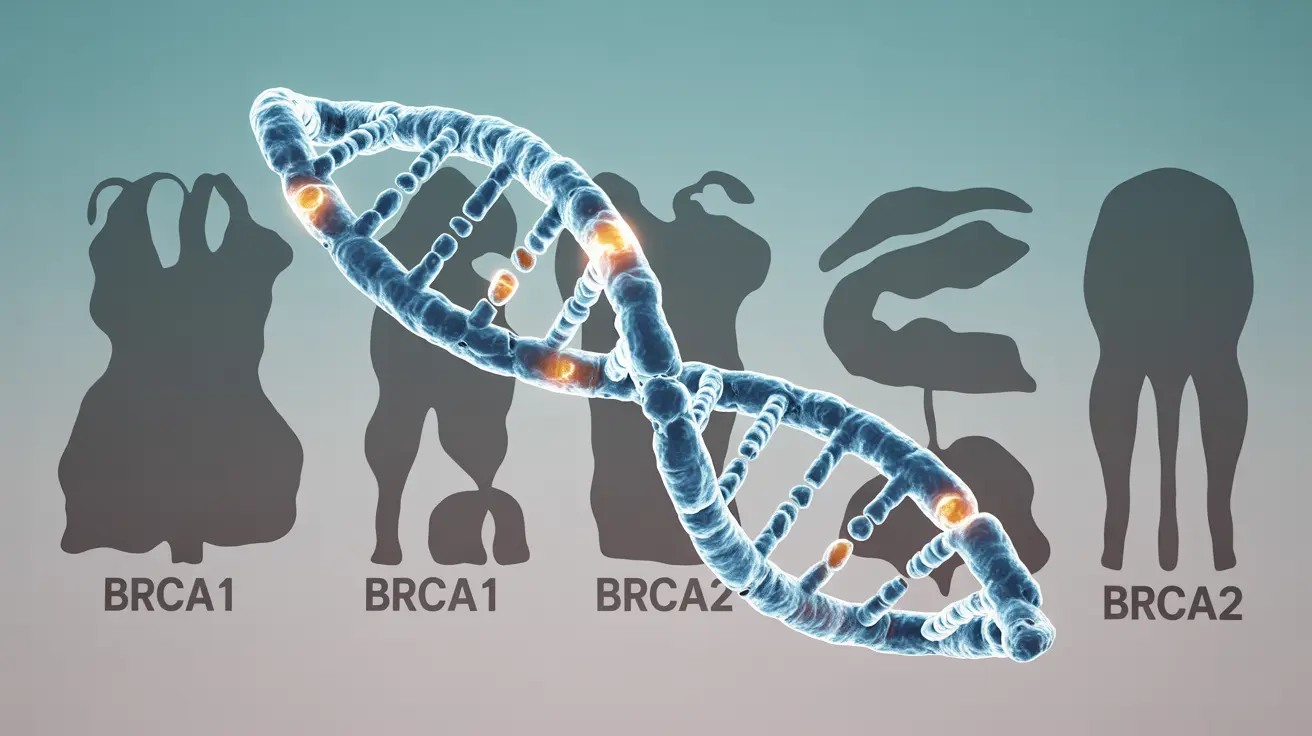Learning that your sister has tested positive for a BRCA gene mutation can be an emotional and concerning experience. This genetic test result has implications not only for your sister but potentially for you and other family members as well. Understanding what this means and what steps you can take is crucial for making informed decisions about your own health.
This comprehensive guide will help you understand the significance of BRCA mutations, testing options, and important considerations for family members of individuals who test positive for these genetic changes.
Understanding BRCA Gene Mutations
BRCA1 and BRCA2 are genes that help prevent cancer by repairing damaged DNA and controlling cell growth. When these genes have mutations, they can't function properly, which increases the risk of developing certain types of cancer, particularly breast and ovarian cancer in women.
When one family member tests positive for a BRCA mutation, there's a 50% chance that their siblings have inherited the same mutation. This is why your sister's positive test result is significant for your own health management.
Getting Tested After a Sister's Positive Result
If your sister has tested positive for a BRCA mutation, genetic counseling and testing are strongly recommended for you. The testing process typically involves:
- Initial consultation with a genetic counselor
- Review of personal and family medical history
- Blood or saliva sample collection
- Laboratory analysis
- Post-test counseling to discuss results and implications
Testing is particularly important because knowing your BRCA status allows you to make informed decisions about cancer prevention and early detection strategies.
Understanding Cancer Risks with BRCA Mutations
BRCA mutations significantly increase the risk of developing several types of cancer. For women, the lifetime risks include:
- Up to 72% chance of developing breast cancer
- Up to 44% chance of developing ovarian cancer
- Increased risk of pancreatic cancer
- Potential increased risk of melanoma
Men with BRCA mutations also face increased cancer risks, including higher chances of developing breast, prostate, and pancreatic cancer.
Prevention and Risk Management Options
For individuals who test positive for BRCA mutations, several risk-reducing options are available:
Surveillance Strategies
- Regular breast MRIs starting at age 25
- Annual mammograms beginning at age 30
- Regular pelvic exams and CA-125 blood tests
- Skin cancer screenings
Preventive Surgery Options
- Prophylactic mastectomy
- Prophylactic salpingo-oophorectomy
- Risk-reducing medications
Insurance and Testing Costs
Most health insurance plans cover BRCA testing for individuals with a family history that suggests increased risk. The Affordable Care Act requires insurance companies to cover genetic counseling and BRCA testing for women who meet certain criteria. However, coverage details can vary, so it's important to verify with your specific insurance provider.
Frequently Asked Questions
What does it mean if my sister tested positive for a BRCA gene mutation?
It means she has inherited a genetic change that increases her risk of developing certain cancers. As her sibling, you have a 50% chance of having inherited the same mutation, which is why genetic testing is recommended for you.
How can I get tested for BRCA mutations if a family member has tested positive?
Start by consulting your healthcare provider or a genetic counselor. They will review your family history and arrange appropriate testing. The process typically involves genetic counseling before and after the test, which can be done through a blood or saliva sample.
What are the health risks associated with testing positive for a BRCA1 or BRCA2 mutation?
BRCA mutations significantly increase the risk of breast cancer, ovarian cancer, pancreatic cancer, and in men, prostate cancer. The specific risks vary depending on which gene is affected and other factors.
What prevention or treatment options are available for someone who tests positive for a BRCA mutation?
Options include increased surveillance through regular screenings, preventive surgeries, and risk-reducing medications. Your healthcare team will help develop a personalized risk management plan based on your specific situation.
Does health insurance typically cover the cost of BRCA genetic testing and counseling?
Yes, most health insurance plans cover BRCA testing and genetic counseling for individuals with qualifying family history. Coverage is mandated by the Affordable Care Act for those who meet specific criteria, but details can vary by insurance provider.




